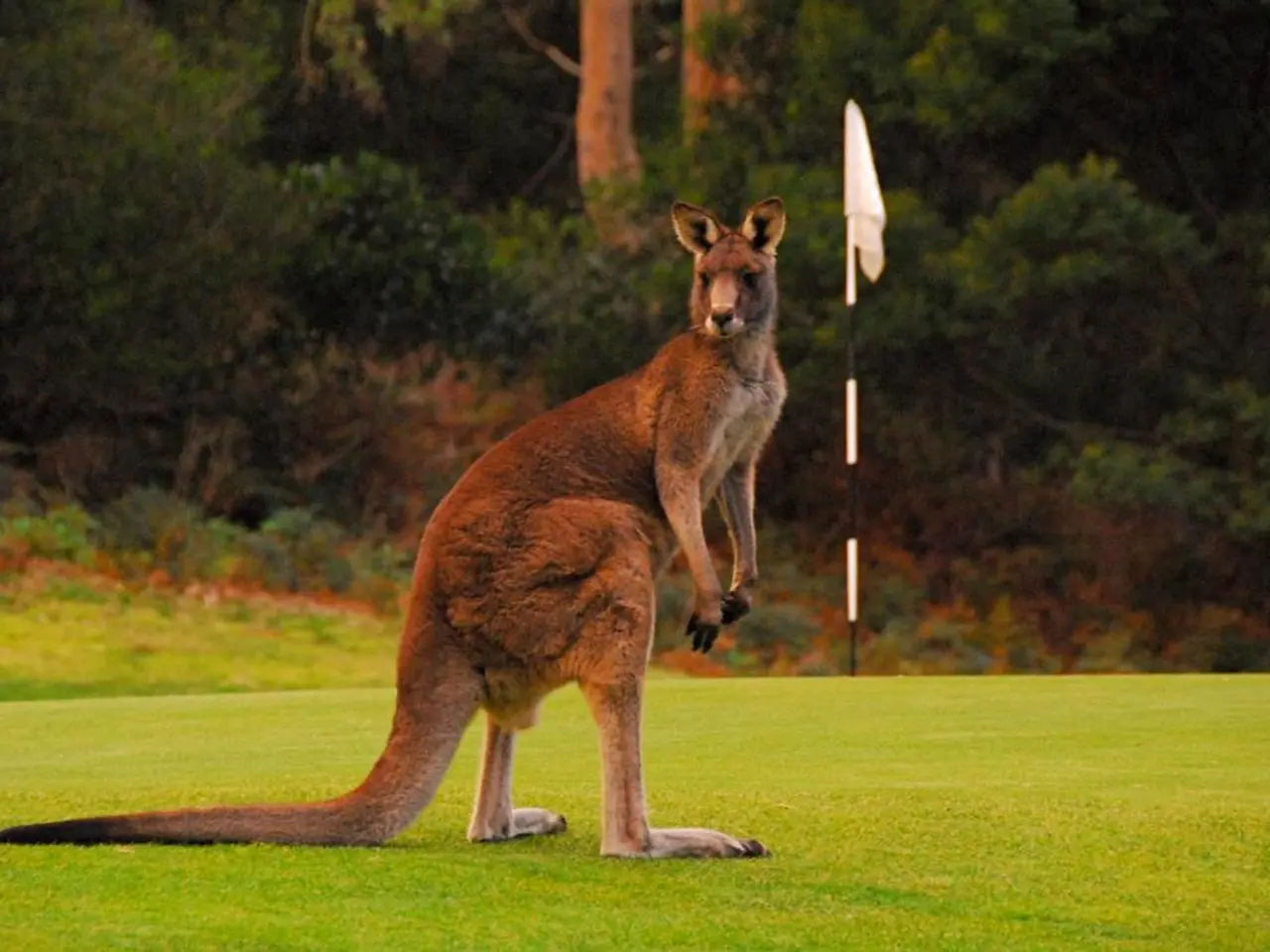Massive Kangaroos Reigned Over the Aussie Wilderness, forgoing the traditional leap.
In the vast, untamed landscapes of Australia's Outback, a world teeming with enormous creatures once roamed. Among these colossal inhabitants were the mega-kangaroos, towering giants that have since become extinct.
These ancient kangaroos, resembling camels with their broad, flat feet and single large toe, coexisted with other megafauna such as the Diprotodon, a wombat the size of a car, and the marsupial lion, Thylacoleo. The mega-kangaroos, however, were not built for agility like their modern counterparts. Unlike today's kangaroos, they did not have long, springy tendons in their legs, instead sporting shorter, sturdier bones designed for shuffling.
This biomechanical constraint made traditional hopping inefficient or impossible for the mega-kangaroos, leading them to walk upright, much like a lumbering human, due to their massive weight making hopping impractical. They fed on leaves and branches from trees and shrubs, rather than grass like modern kangaroos.
The extinction of mega-kangaroos was a result of a combination of climate change and human activity around 40,000 years ago. Their demise serves as a stark lesson in the fragility of ecosystems and the potential consequences of climate change, habitat loss, and the arrival of new species.
Paleontologists continue to study mega-kangaroo remains, using new technologies like DNA analysis and 3D scanning to unlock secrets hidden for millennia. One such creature, Procoptodon goliah, weighed up to 240 kilograms and stood over two meters tall.
The legacy of mega-kangaroos lives on in the bones scattered across the Outback and the genes of modern kangaroos. Despite being smaller and more adaptable, modern kangaroos are nowhere near the size of their extinct counterparts.
The story of mega-kangaroos sparks imagination and wonder, urging us to look at the natural world with fresh eyes. It offers both a warning and a source of inspiration, asking us to consider what could be lost and what might still be discovered in the face of rapid environmental change.
And every year, paleontologists uncover new fossils in Australia that challenge our understanding of the past, ensuring that the mysteries of these ancient giants continue to captivate and intrigue us.
In some Aboriginal Australian legends, giant kangaroo-like creatures roam the land. While a direct connection to encounters with extinct mega-kangaroos is impossible to prove, these tales add another layer of enchantment to the story of these colossal creatures.
Read also:
- Postpartum Period and Gestational Diabetes: Does it Persist?
- Controlled spree of Legionnaires' disease among Harlem residents ceased, city health authorities confirm; however, locals push for increased openness and information disclosure
- Transform City for the Better
- Prostate Cancer Examination Guidelines, Outcomes, and Financial Aspects








